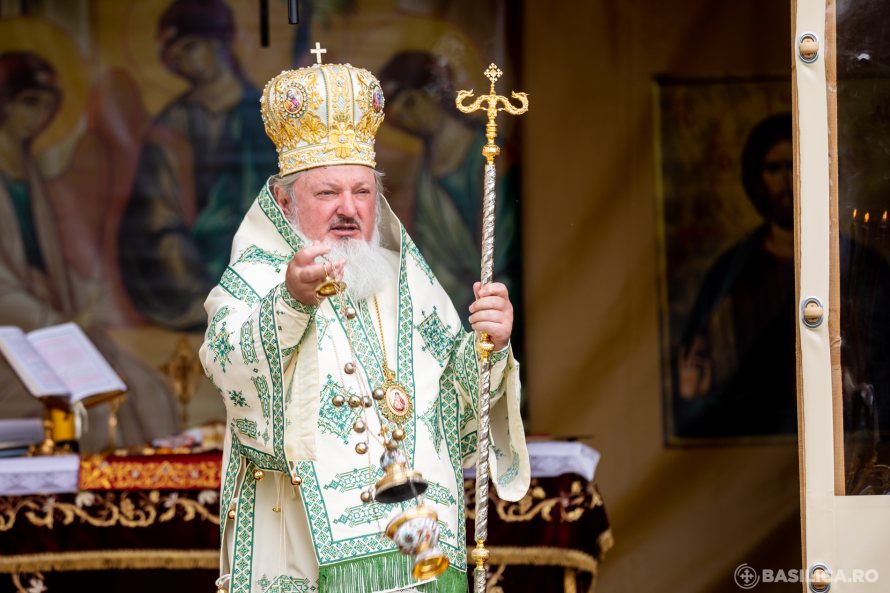On Pentecost Sunday, Patriarch Daniel spoke about the Church’s practice to bless the fruits on the feast of the descent of the Holy Spirit and to offer prayers for the entire creation.
He referred to the significance of the walnut tree leaves sanctified on Sunday and stated that “man sanctifies the place if he keeps in touch with God the One Holy.”
“These walnut or linden leaves also mean sanctification of nature, a blessing of the Holy Spirit for the entire nature, for all creation, that is why we, through our prayers, sanctify the place where we are.”
“Man sanctifies the place if he keeps in touch with the One Holy God. This great day of Pentecost, which was a Roman feast of roses, also means for us a blessing of the Holy Spirit for all human life, for all man’s work, for all the surrounding nature that we must cherish more than being God’s gift to us.”

We Orthodox do not lock God in the church
In his homily at the Cernica Monastery on June 7, Patriarch Daniel explained that this tradition of blessing the fruits of the earth for Pentecost is found mainly in some areas of Romania, especially in Transylvania, and it shows that we do not “lock God in the church.”
“When there is a great drought when there are storms, hail, we see how much we depend on peaceful times or rain in good weather. Therefore, we must pray that God will sanctify our souls, our bodies, but also our holdings and lands. In some parts of the country, especially in Transylvania, wheat ears or different crops are blessed on this day. People went out into the fields and prayed for the fruits of the earth.”
“All this shows us that we, Orthodox faithful, do not lock God in the church, but we feel His presence everywhere, inside the Church in the first place, but also where we pray and work with our mind to God, we thank Him for our existence, we thank Him for health, for life and all the good giving to the glory of the Most Holy Trinity.”
The Holy Spirit is a cleansing fire
The Patriarch of Romania recalled the cleansing role of the Holy Spirit, which produces change from within man and who “wants every man to take the image of Christ.”
“When the Holy Spirit comes into the sinful man, but who believes in Christ, He begins to cleanse him from sin and awakens in man the feeling of repentance, of regret in a life lived far from God and against God’s will.”
‘He is a cleansing fire that burns the slag of sin and turns a selfish and rigid man into a merciful and gentle man.’
“The Holy Spirit also brings light”, underscored the Patriarch of the Romanian Orthodox Church, noting that “He is an enlightening and warming Spirit.”
“The Holy Spirit enlightens the human mind to understand the Holy Scriptures as letters of God’s love for humans for their salvation. He enlightens the human mind, delivers man from the darkness of sin, and warms man’s heart.”
In this context, Patriarch Daniel said that prayer is essential for the coming of the Holy Spirit inside us.
“When we pray quickly, mechanically, rapidly, superficially, it is a sign that we have not asked enough for the Holy Spirit to come into us. But when man joyfully desires to pray, and when his heart is warmed with love for God and His saints, this is a sign that the Holy Spirit dwells in the soul of man.”
At the end of his sermon, the Patriarch thanked his patriarchal auxiliary Bishop Varlaam of Ploieşti for celebrating the Divine Liturgy and offered several books recently published by the Romanian Patriarchate for the library of the Cernica Monastery.
Protosyncellus Vasile Pîrjol, the abbot of Cernica Monastery, presented Patriarch Daniel with an icon depicting Saint Callinicus of Cernica. Bishop Varlaam received an icon of Saint George of Cernica.














